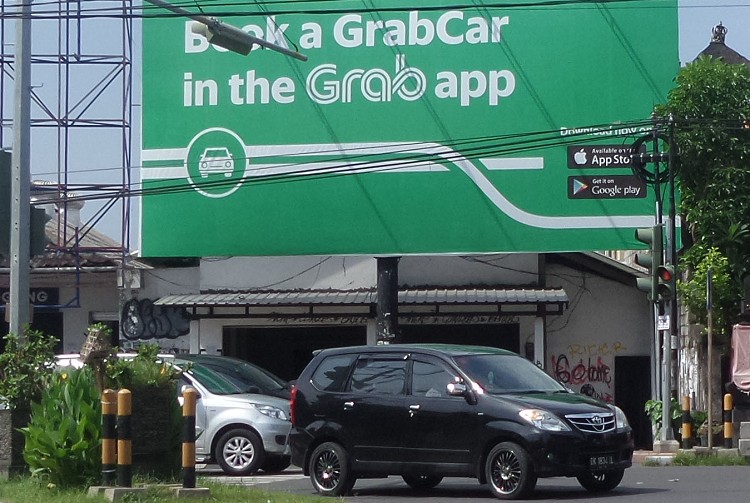Popular Reads
Top Results
Can't find what you're looking for?
View all search resultsPopular Reads
Top Results
Can't find what you're looking for?
View all search resultsApp-based transport services get green light
Change text size
Gift Premium Articles
to Anyone
It is finally legal for mobile application-based transportation services to operate in this country, although most of the cars have yet to undergo government safety tests.
As of May 30, only 329 cars partnering with Uber, Go-Car and Grab had passed the vehicle roadworthiness test (KIR), out of the total of about 13,000 four-wheelers in operation. A KIR test is required for every vehicle intended for mass transportation.
The government previously gave the companies until May 31 to meet some requirements in order for them to get permits for legal operation. The terms include having a legal entity and a minimum number of five vehicles that have undergone a KIR test, as well as partnering with cooperatives with carpool and repair services.
“The ones that have passed the KIR can operate; the ones that haven’t cannot. We will take action if there are drivers operating who are found to be violating the rule,” said the Transportation Ministry’s director general for land transportation, Pudji Hartanto Iskandar.
No details were available on the punishment to be imposed on negligent drivers, or on who will enforce the regulation, which potentially gives the companies some leeway to take the government requirements lightly.
Grab Indonesia, for example, indicated it would not bar drivers that have not passed the road worthiness test, hence normal operations are possible for app-based transportation service companies even without a KIR test.
“We will seek other ways [than barring drivers]. However, we want to be consistent with the government’s view. We will wait and see,” Grab Indonesia’s Teddy Trianto Antono said.
Uber Indonesia representatives could not be reached for comment.
Only 1,000 drivers are so far eligible to take their road worthiness tests because many of them are registered as private. To get the test, cars must be registered under a cooperative. Many drivers are still reluctant to do so, Indonesian Car Rental Businessmen Association (PPRI) said.
The number of drivers partnering with Uber and Grab totaled about 8,000 and 5,000 respectively, according to data from the Jakarta Transportation Agency. However, only 171 cars under Uber’s cooperative partner, Jasa Trans Usaha Bersama, have passed the KIR. Meanwhile, 153 cars from Grab’s partner, the PPRI have passed.
Car rental businesses fear that many of their drivers will be arrested for not meeting the safety standards. PPRI head Ponco Seno said firm action must be taken against noncompliant drivers, including blocking them from using the application.
“I think they would still likely operate. They don’t think it’s important to get the KIR. They shouldn’t be allowed to operate like that,” he said of the Grab company.
The country has seen rallies against app-based transportation services, which were previously unregulated, with the latest one in March turning violent. The Transportation Ministry subsequently issued Regulation No. 32/2016 on mass transportation without routes, which also covers app-based transportation services. (dmr)










